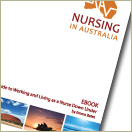|
Is an Online Nursing Degree Right for You?When considering a career as a nurse, it's easy to become overwhelmed by the vast number of choices in nursing schools. With varying course lengths and levels of education ranging from a nurse's aide to an LPN or RN, it can be difficult to determine how long you'll need to spend in school to get the job you want. It can be even more of a challenge to choose a school and decide whether you prefer in-class training, online courses, or on-the-job training. Is there a real benefit to choosing one certain type of learning over another? Pros & Cons of an Online Nursing Degree Like any other teaching style, online nursing degree coursework has distinct advantages and disadvantages:
Nursing Qualifications & Certificates Is it possible to complete the same degrees and gain the same nursing certification online as you could in a classroom? The answer is yes. Although many nursing programs tout themselves as LPN or RN training programs, none of these courses actually offer certifications as a licensed practical nurse or registered nurse. The actual certificates are provided by an independent licensing board whose tests must be passed after completion of a nursing degree. Whether you study in a classroom, online, or through on-the-job training, you still have to pass the same tests to become certified as an RN or LPN. A comprehensive online course can provide you with the same quality of test preparation as any other nursing program.
What to Expect from Your Online Degree Like any other nursing education program, online courses offer a combination of lessons, readings, papers, and exams. Unlike traditional classes, all of these are offered over the Internet, along with online discussion forums, feedback, and other support. One of the most common qualms about online learning is that you’ll be unable to contact the professor or ask questions about the course material. In fact, the opposite is often true. While traditional classroom professors usually set specific office hours during which students can contact them, online instructors can be reached via email and forums, typically resulting in much quicker response times. The forums can also be a valuable source of study support; often, your classmates can provide immediate answers to your questions without input from the professor. The biggest shortcoming of online nursing degree programs is the lack of hands-on experience. No matter how well you study or how high your marks are, you'll still be doing a great deal of on-the-job learning during your early days of employment as a nurse. This is true of many in-class nursing programs, but it's important, and in most cases required, that you continue learning even after you complete your online degree.
Please refer to the Online Degrees Guide for more resources.
Return to home for additional information on LPNs |



